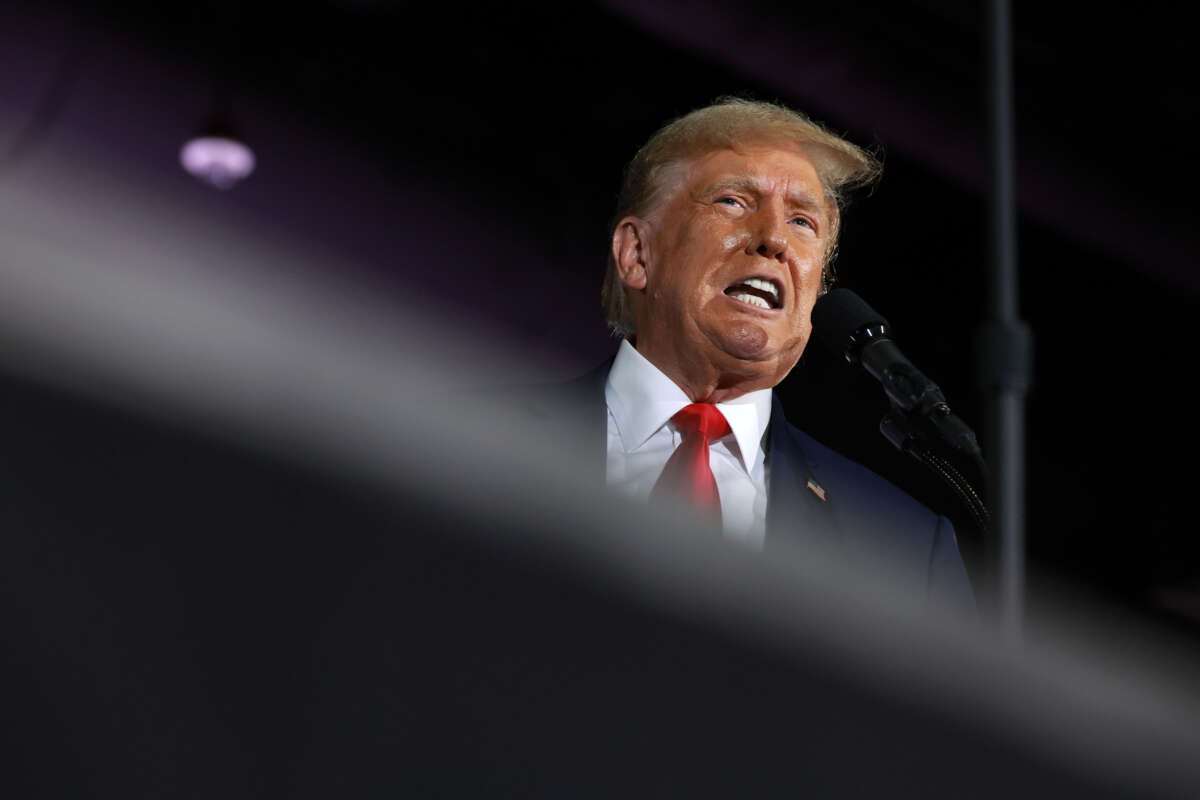The New York Court of Appeals, the state of New York’s highest court, has rejected an appeal from former President Donald Trump to lift the gag order imposed on him in his Manhattan-based criminal trial.
Trump was found guilty on May 30 of 34 felony-level counts relating to his concealing hush-money payments to women with whom he had extramarital affairs ahead of the 2016 presidential election season.
During the trial, Justice Juan Merchan, the judge overseeing its proceedings, imposed a gag order on the former president, limiting what he could say publicly about jurors, potential witnesses, the prosecution’s staff, court staff or the family members of those staffers. He was still allowed to criticize the trial itself, and wasn’t restricted from making public comments against District Attorney Alvin Bragg or Merchan.
Although the trial is now over, Trump is set to be sentenced on July 11. The gag order is still in effect at least until that time, but could last longer if Trump makes an appeal, which he has promised to pursue.
Trump violated the gag order 10 times and was fined $1,000 for each instance. He was also warned by Merchan that any further violations of the order could result in jail time, a possibility Trump had suggested he would purposely pursue as a “sacrifice” to protect the Constitution and his free speech rights.
Gag orders are not unusual in criminal trials, especially when the words or actions of a person involved could influence the outcome of a case.
Trump’s lawyers appealed the gag order, but the trial was allowed to continue while that process played out. In May, a state appellate court ruled against Trump, finding that Merchan had properly “weighed [Trump’s] First Amendment Rights against the court’s historical commitment to ensuring the fair administration of justice in criminal cases and the right of persons related or tangentially related to the criminal proceedings from being free from threats, intimidation, harassment, and harm.”
That ruling was then appealed to the state Court of Appeals, which on Tuesday stated in a brief order that it was refusing to entertain the notion, allowing the lower court ruling to stand. In doing so, the Court of Appeals said that “no substantial constitutional question is directly involved” within Trump’s argument to lift the gag order.
Trump’s continued losses in the court case could hurt him politically, much more so than any gag order against him. Indeed, aggregate polling data collected by FiveThirtyEight shows that Trump’s support has dipped slightly since the guilty verdict.
According to an average of polls, Trump had a 1.7-point lead over incumbent President Joe Biden the day the verdict was read. As of Tuesday, that lead has diminished, to a 0.6-point lead over Biden.
Observing this trend, the Biden campaign has paid for a major commercial that highlights Trump’s conviction within the first few seconds. The $50 million ad will air primarily in swing states.
